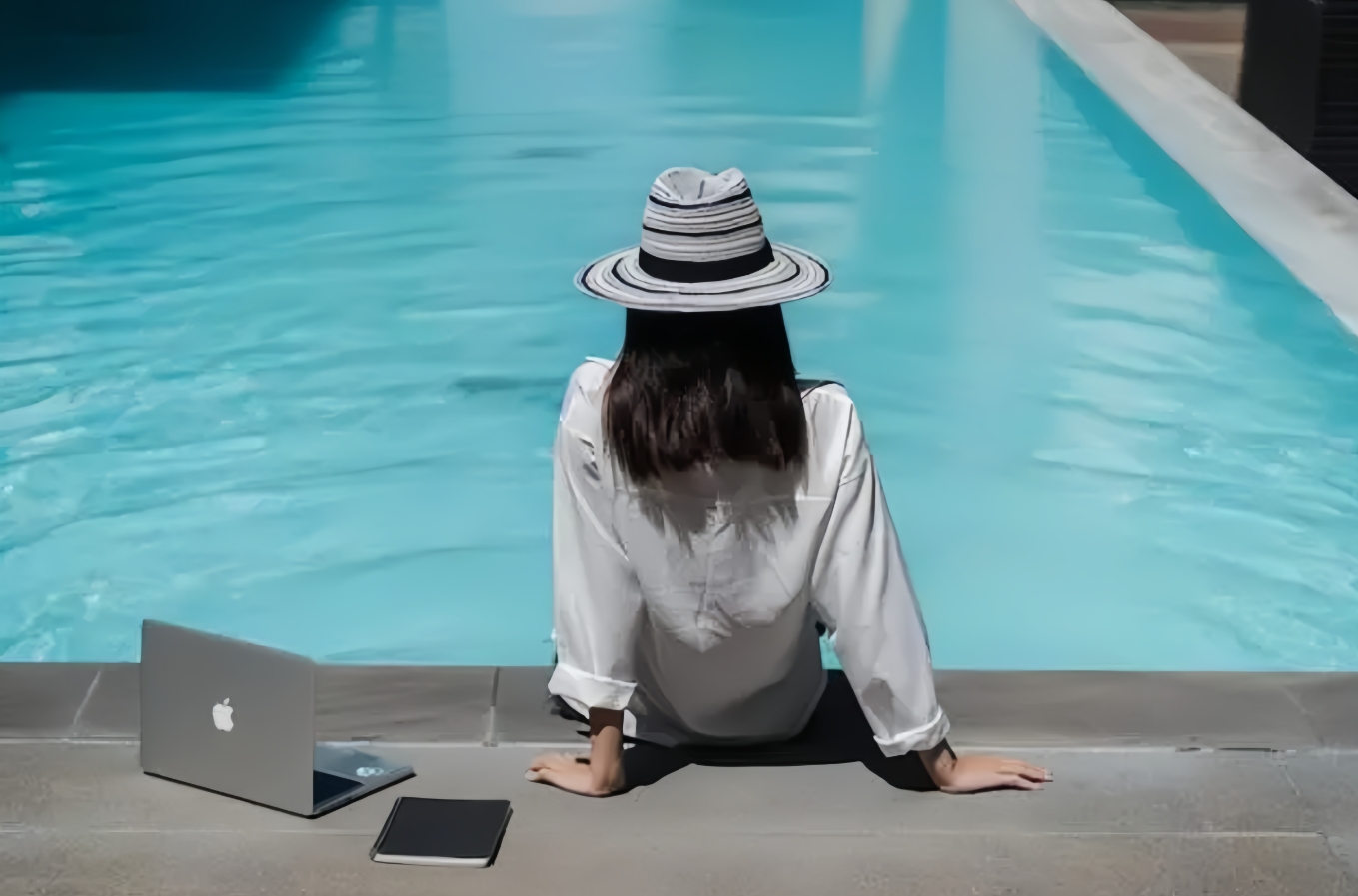

As the world emerged from the pandemic, travelers and workers continued to welcome a more hybrid, blended living. In this issue of Labbrand Spotlight from Singapore, we examine some of the key insights around shifts in people’s attitude towards work and life, and how brands are adapting their spaces, offerings, portfolio, and business models to respond to the renewed needs of blended travel.
Over the last 2-3 years of languishing in lockdowns, the world learnt to resume work virtually, to digitise connections, and to physically live in isolation. This experience shifted what people value and what people prioritise the most – in terms of how time is used, their relationships with loved ones, their personal wellbeing and self-enlightenment. The Great Merging between business and leisure and beyond addresses these innate human needs.
Neither full-time onsite nor permanently remote can sustain the synergy and authentic connection that in-person interactions can create. Not to mention the monotonous routines can sometimes be detrimental to wellbeing and productivity. Blending work and travel rearrange what used to be compartmentalised time and knit them all into unified life experience. It provides frequent physical reboot and mental reset from work, giving people their desired work-life balance, health, and wellbeing (see our newsletter Wellness in Hospitality). Inspirations and outside-the-box spark found on-the-road can lead to elevated productivity and creative breakthroughs.
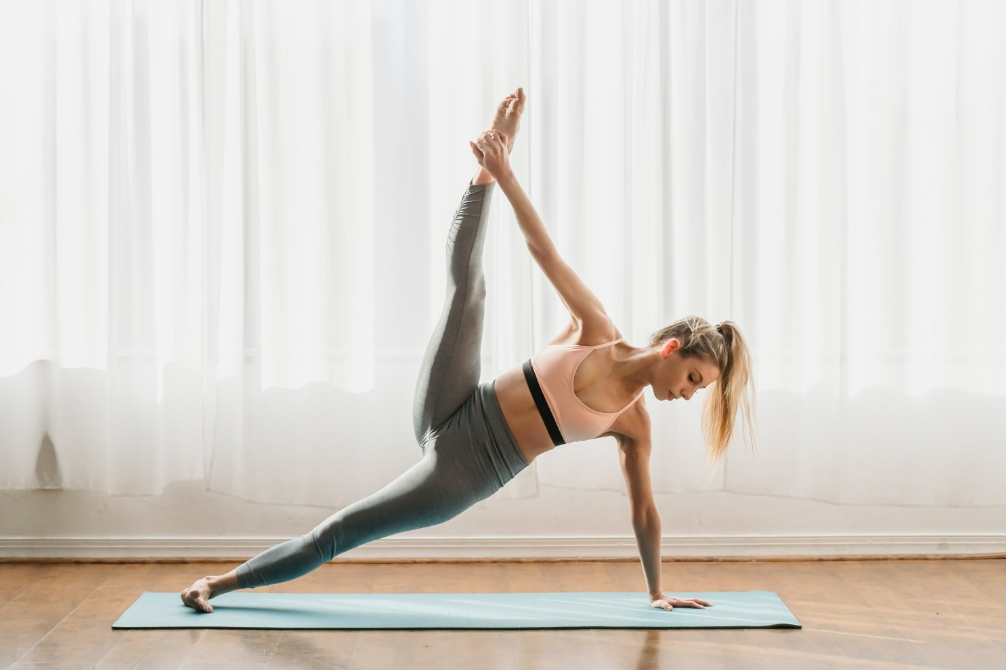
Social distancing and the physical isolation from lockdown serves as a reminder that the time with closed ones is finite and spending quality time together is a priceless gift. The merging between business and leisure trips means people are bringing their families, friends, or colleagues with them during extended business trips. Airline companies, too, accommodate this need by offering flexible booking options and promotions for local cultural, nature and other recreational experiences. This betters people’s relationship with the wider environment by making blended travel green as well.
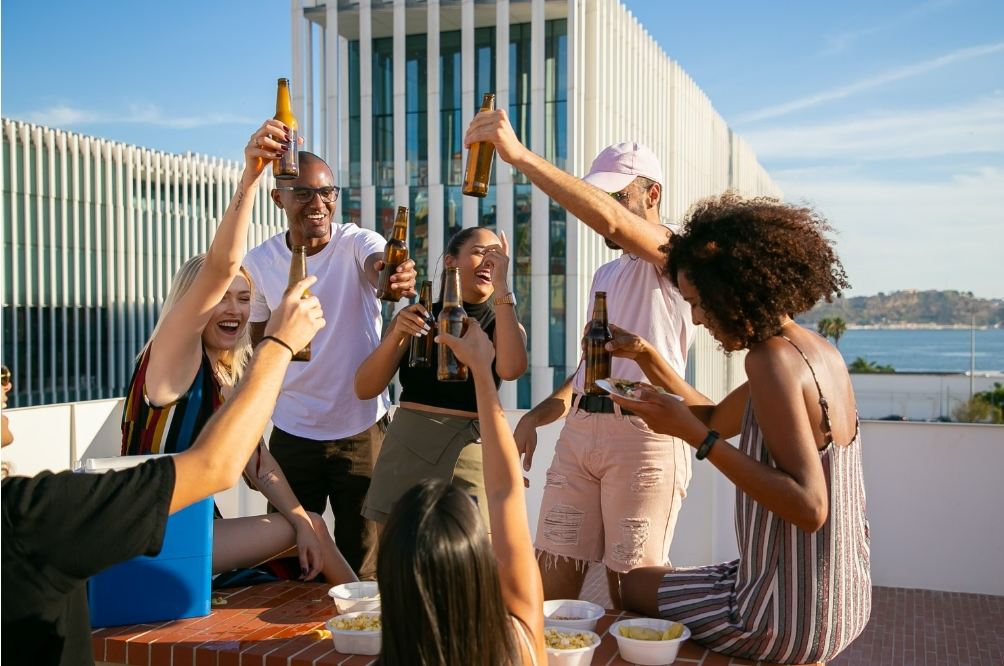
During the lockdown, many, especially young people, spent what should be their significant life-stages in silo. Their thwarted endeavours outburst strong desires to enrich life experiences. Travelling, like upskilling, is their way to strive again for lost in-person connection and lost opportunities to explore new cultures and experiences. This work-in-progress, growth mindset is their manifestation and also what employers see as invaluable entrepreneurial spirit. The future of blended travel blossoms the opportunities beyond work and leisure relaxation – it is becoming life-enriching.
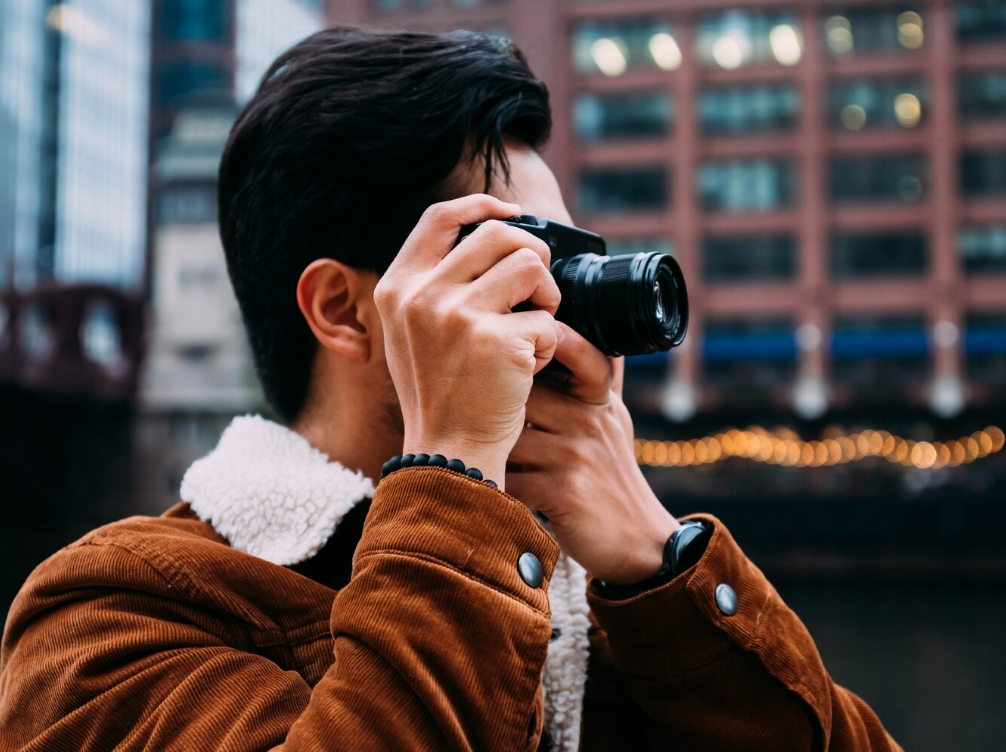
Flexible modes of working engender higher levels of productivity, more creative ideas, and a more balanced form of wellbeing; workers can be inspired by different surroundings and newly formed connections. It breathes life into work routines, and people can return to work reinvigorated with new ideas and focus.
This means hospitality brands are looking to create the Third or even Fourth Place beyond traditional hotel models. They are adapting to find new ways to engage with this need, from introducing day-use passes, team building experiences, to transforming business models and hotel spaces, and forming strategic ‘bleisure’ partnerships. By heeding to blended travel needs, hotel brands can not only lower acquisition cost, but also convert business travellers to loyal guests, all the while calling for more versatile and flexible experiences that tailor to guests’ every needs.
The updated business lounge Plaza Workspace at Crowne Plaza Shenzhen World Exhibition Convention Centre caters to a new generation of business travellers. Transforming its existing spaces to curate meaningful and authentic interactions, the hotel merges two separate spaces (the business centre and leisure lobby lounge) for both guests and the public to enjoy flexible working.
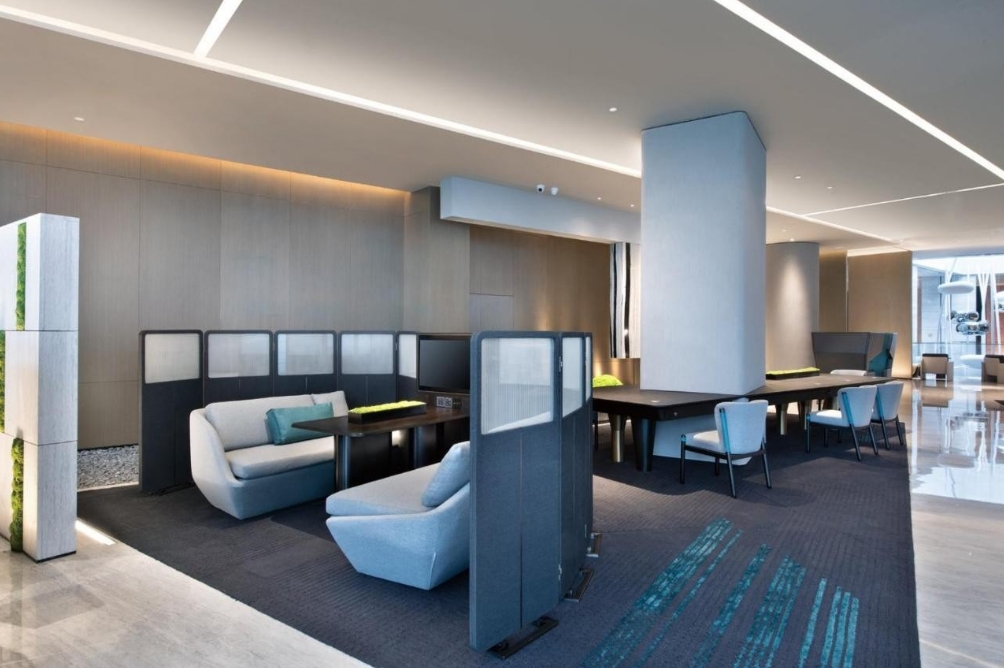
The ‘unofficial’ workspace in the lobby features co-working zones with workstations, pods and nooks that seamlessly share screen with remote teams. Furniture is designed and arranged to offer open spaces that are less stifling yet preserve privacy. It nurtures both focused productivity and informal collaboration to inspire ideas.
Zoku is a Netherlands brand whose name conveys ‘family’ and ‘tribe’ in Japanese. It prides itself as a hybrid hotel brand that champions a model of hybrid home-office for business travelers. It emphasizes on the importance of offline interactions between teams to restore the authentic connections lost during the pandemic years. Guests can select their trip purposes: from business trip, city trip, relocation, to team offsites and workshops, to an extended monthly or year-long stay – all are designed to fuel social engagement. Their multifunctional Zoku Loft, Apartment, and Studio support team collaborations as well as personal wellness and living. Guests can invite their friends and business relations to their ‘home-office’, where the ‘living’, instead of sleeping, is the space’s focal point.
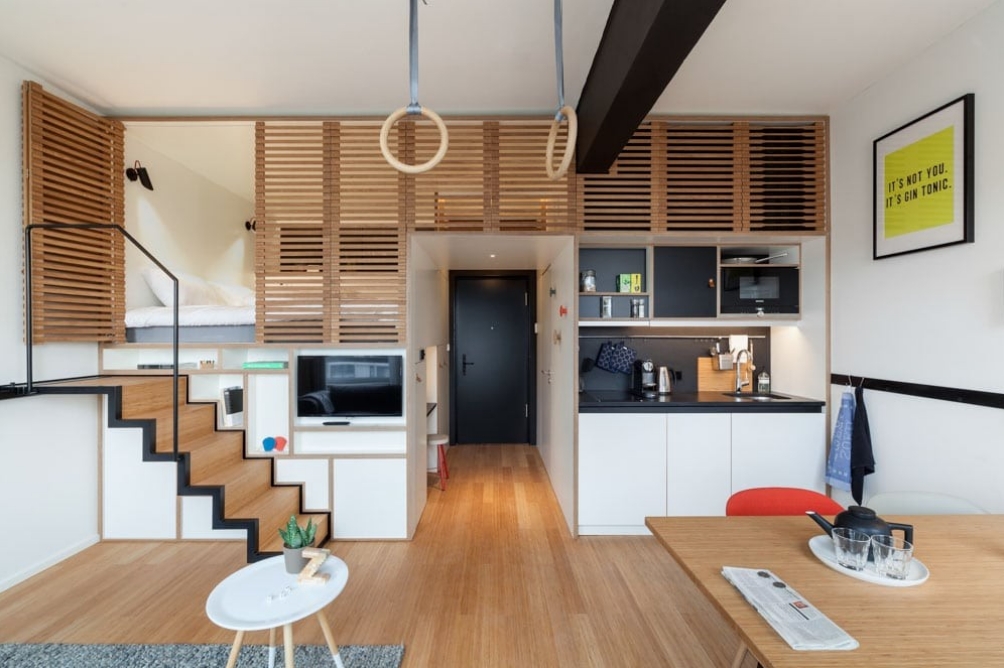
Zoku Hospitality brings hybrid living to its height. Working is blended into living, in a way blurring the line between work and life, yet the multifunctional facilities distinctively support the needs for both. The guests can switch mindsets seamlessly and make their blended travel more stress free and exciting.
Work From Hyatt: Offsite, a corporate retreat concept from Hyatt, offers team-building events and retreat experiences that enable co-workers to reconnect both on- and off- property. The brand collaborates with local attractions, restaurants, and fitness studios. With activities such as city scavenger hunt and sailing regattas, the offsite concept thoroughly inspires team spirit with hotels’ own amenities as well as through local cultures. In addition to venue and meeting space booking discounts, their curated experiences feature personalised menus and dedicated on-site planning and event experience managers to ensure a seamless and nurturing environment for work reconnection.
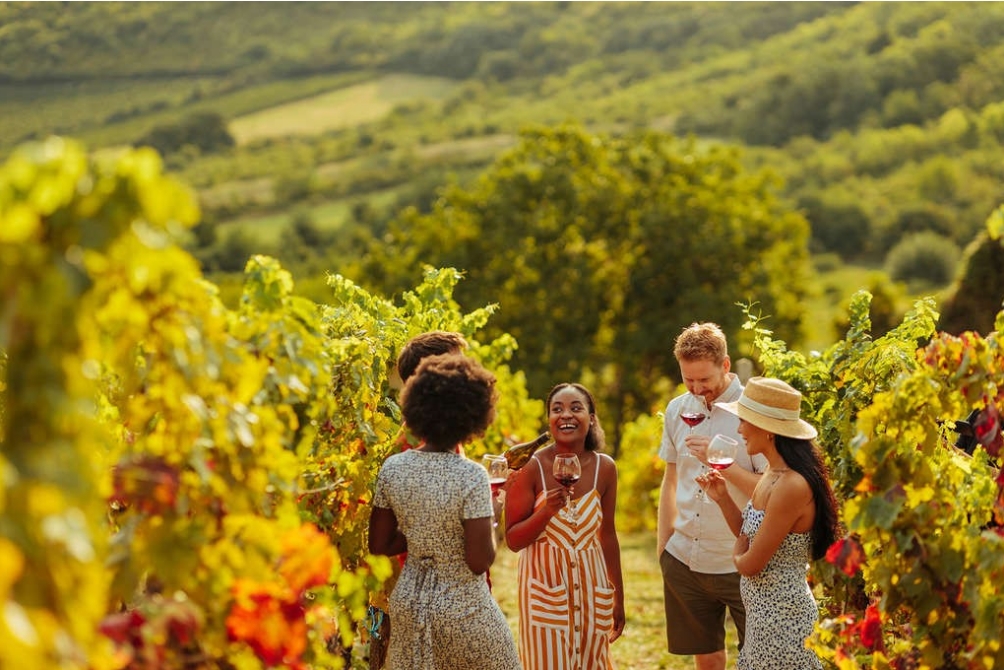
Blended travel has made corporate retreat experiences more proliferated and versatile, allowing hospitality brands to creatively craft experiences. These memorable experiences outside of workspace rekindle work relations and team cohesion, making the company culture more close-knit and united under shared memories, effectively facilitating communication around the work environment.
Accor embraced this work-from-anywhere and on-the-go lifestyle with their co-working brand WOJO – short for ‘Work Mojo’, meaning to have a job one loves and motivates wherever one goes. WOJO consists of 3 types of spaces: WOJO Spots, designed spaces within Accor hotels where guests can work as and when they please; WOJO Corners, quiet co-working corners at Accor as well as at transit social spaces such as train stations, airports and shopping malls, which provide people sanctuaries from the hustle and bustle outside; and WOJO Sites, purpose-built community hubs that mix living spaces with areas for work.

Each of these spaces are designed for different purposes. Instead of seeking guests with fixed locations, the brand, especially WOJO Corners, chooses to be where the guests will be, i.e., augmenting hospitality into people’s mobile-working lifestyle, empowering guests to have more control over how and where they choose to spend their time.
The pandemic lockdown reminded people of the preciousness of connection, treasuring again the faded vigour that was taken for granted before. With the relaxation of travel restrictions, people now urgently want to explore and enrich their life experiences through introspective self-enlightenment and connection with the wider world.
In the global scramble for talent, Gen Z and Millennials are increasingly turning down job opportunities that do not offer flexible working options. For them, personal pursuits and wellbeing are as important as the work they do. The nomadic lifestyle they lead amplifies and diversifies the dimensions and meaning of leisure. This growth mindset feeds curiosity and stores ideas from diverse point of interests, and the creative revelation infuses their personal and professional lives. The goal is to therefore reconnect and explore what the world has to offer through blended travel.
The boutique luxury hotel Ace Hotel is behind the key driving force to attract young travellers. It has a variety of curated events and happenings unique to the talents at each location, ranging from performing arts, installations, to DJ music events, and collaboration with renowned museums. Their affinity with artists and their belief in the critical power of art are reinforced through their Artist in Residence (AiR) programmes, where they invite creative collectives and art institutions to reimagine and transform their hotel rooms into their studio. The resultant body of works will then be exhibited and shared with the public.
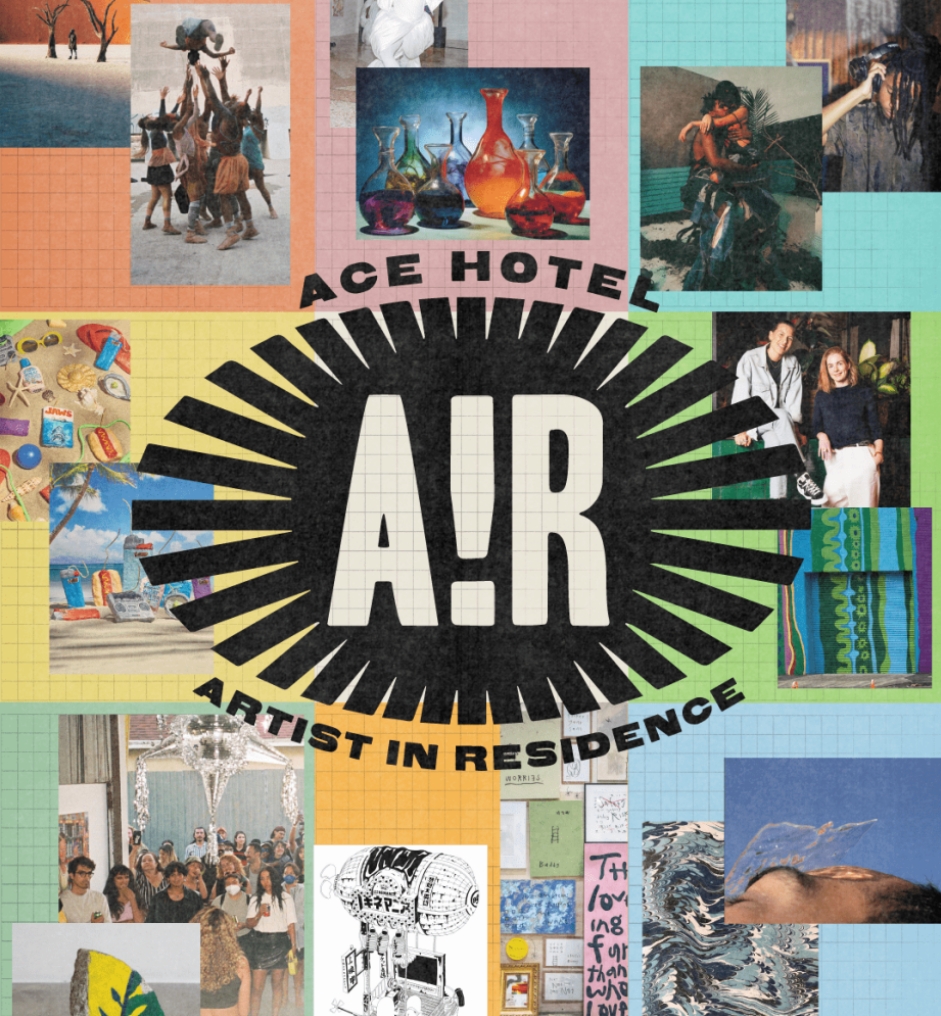
Blending art into ‘bleisure’ helps guest to experience higher levels of purpose and self-actualisation, filling travel with heightened experiences and new perspectives that inspire. Unlike hotels that have miscellaneous activation programmes, these happenings are central to Ace Hotel. The brand projects itself as a purpose-destination, merging lifestyle pursuit into ‘bleisure’ and attracting more contemporary young travellers who want to seek out the hip and one-of-a-kind experience, and those who wish to explore, enrich, and fuel themselves with inspirations.
Selina Hospitality is a lifestyle and experiential hospitality brand that provides co-working, recreation, wellness, and local experiences in their destinations, ranging from urban cities to tropical jungles. Their Selina CoLive programme especially offers nomads month-by-month subscription with options to switch destinations within the subscribed period. The nomads who prefer to work and travel at the same time can access co-working spaces, wellness classes, online community events and onsite facilities unique to the destination. In a way, Selina provides the seamless experience where guests can be truly flexible when choosing the cultures and experiences they want to explore. The brand brings authentic localism instead of tourism to the guests.
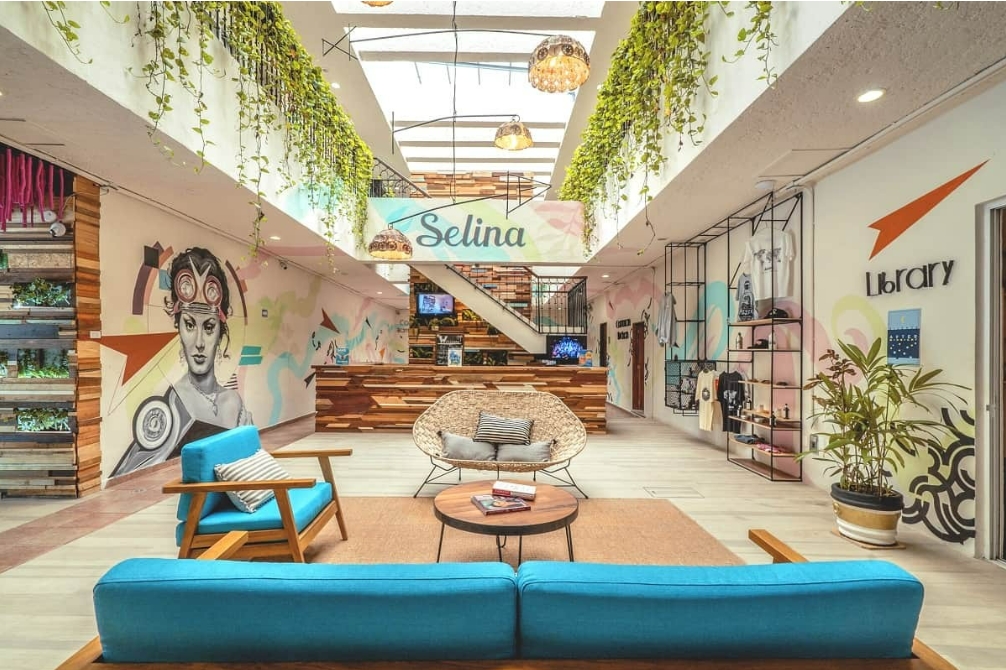
With options such as these, young workers who prefer to work from anywhere and chase unique life experiences on a regular basis, are empowered professionally and by hospitality brands to easily blend work and play and live their lives to the fullest.
As blended travel opens more roads to how people value and spend their time, and what they can discover from it, brands should adhere to the need for hybrid working and living as well as update the meaning of work and life pursuits through travel and hospitality. Flexibility, convenience, and comfort will eventually become a norm, and it is the unique experiences and the empowering value to the guests’ personal lives that will serve as the tipping point for hospitality brands who want to succeed in the long-run.
A Labbrand Group Company © 2005-2024 Labbrand All rights reserved
沪ICP备17001253号-3* Will be used in accordance with our Privacy Policy
To improve your experience, we use cookies to provide social media features, offer you content that targets your particular interests, and analyse the performance of our advertising campaigns. By clicking on “Accept” you consent to all cookies. You also have the option to click “Reject” to limit the use of certain types of cookies. Please be aware that rejecting cookies may affect your website browsing experience and limit the use of some personalised features.